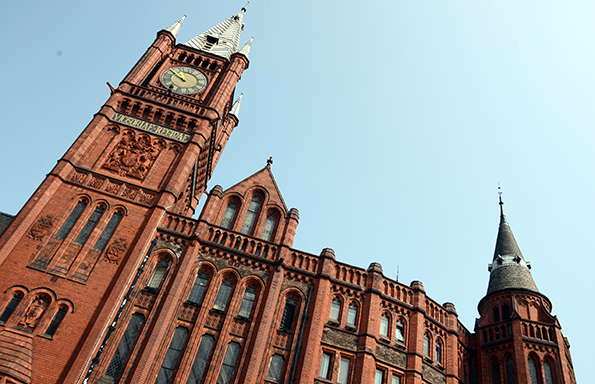
The University of Liverpool has launched an economic and social impact report which highlights its contribution to the Liverpool City Region, including its significant role in driving economic growth, job creation, an increase in student numbers and ground-breaking research.
Together with its students and their visitors, the University of Liverpool generated a £652 million gross value added contribution to the Liverpool City Region in 2015-16. This represents a 31% acceleration in economic growth at the University since 2011-12, compared to a 4% increase across the City Region.
The report also shows that one in every 57 jobs in the Liverpool City Region (some 10,790 in total) was supported by the University, its students and their visitors in 2015-16. This represents a 17% increase in University-related employment since 2011-12
The main driver behind these changes is the increasing demand to study at the University of Liverpool. Over the last five years, the University’s excellent teaching and Liverpool’s appeal as a place to study have attracted greater numbers of students from across both the country and the globe. This has resulted in a 19% increase in student numbers over the last five years.
Partnership with the City
Commenting on the report, the University’s Vice-Chancellor, Professor Janet Beer said, “Our city has many special qualities and we are extremely proud to have been founded in 1881 by and for the citizens of our city.
“The economic and social impact report highlights the major contributions of the University of Liverpool to the success of the Liverpool City Region, not least through a significant increase in our student population, a parallel growth in University staff and providing local jobs through a major programme of investment in our facilities.
“The report is also a clear statement of intent to continue to actively nurture and develop our partnership with the City Region in years to come.”
Professor Michael Parkinson CBE, Associate Pro-Vice-Chancellor, said, “Liverpool City Region has had considerable economic success in the past decade. To be even more successful in the future it will need innovation, higher level skills, business start-ups, public-private partnerships, investment in infrastructure, global engagement and leadership and delivery capacity. These precisely reflect the strengths and ambitions of the University of Liverpool and we are committed to using them for the benefit of the Liverpool City Region.”
Steve Rotheram, the elected Mayor of Liverpool city region said: “I am delighted to welcome this report. The University of Liverpool is one of our great institutions and one of our most important civic and economic assets. Successful cities in the 21st Century are those with thriving and fertile knowledge economies underpinned by leading-edge and globally connected Universities. The University of Liverpool plays a massive role in the life of our City Region and I look forward to drawing on its intellectual and social capital as we seize the great opportunities that lie ahead.”
Research impact
The report also highlights the University of Liverpool’s leading role in ground-breaking research, from developing new materials with large-scale applications in both industry and consumer products, to enhancing the personalisation of health management and progressing the battle against infectious diseases.
Recent investment in new and upgraded buildings and facilities reflects the University’s world-leading research and successful partnerships. The Knowledge Quarter is home to a number of exciting new developments for the University, its partners and the City Region as a whole, including the £68m Materials Innovation Factory built by the University in partnership with Unilever and a £35million investment in the William Henry Duncan Building, which accommodates the new Liverpool Bio Innovation Hub.
Social impact
The report also identifies the University’s important role in driving social mobility. The University ranks first in the Russell Group both as a recruiter of students from state schools and as a recruiter from communities where people are statistically less likely to go to University.
The University works with 345 schools and colleges that teach high numbers of pupils from low income families and spent £1.5million in 2015-16 on outreach programmes.
Read the full report here